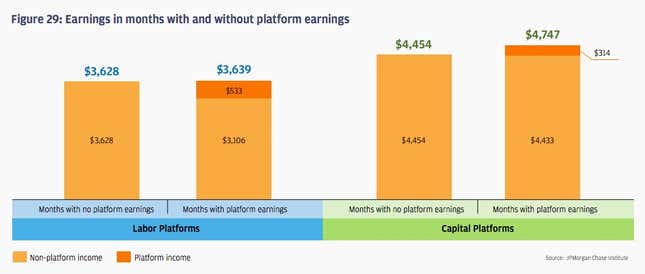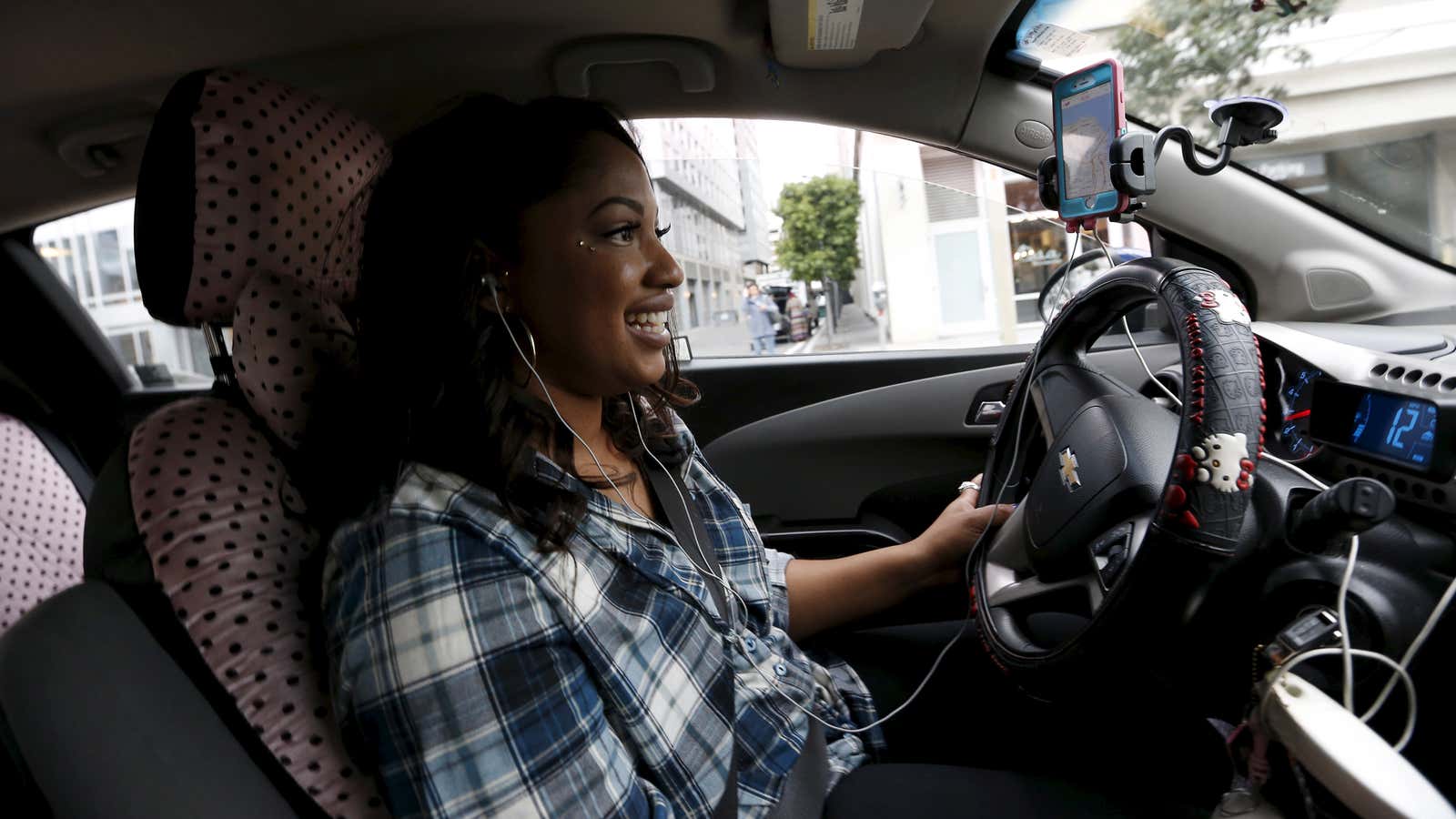When we talk about the “sharing economy,” Uber and Airbnb tend to be mentioned in the same breath. Both are known for their smooth, convenient, peer-to-peer services for consumers. In enlisting providers like hosts and drivers, they promise their workers that they can make extra money on their own schedule.
But there’s a big difference in the kind of extra money that people earn on platforms like Airbnb versus platforms like Uber. It illustrates the classic divide between capital and labor, now at play in America’s new digital economy.
A new study from the JPMorgan Chase Institute, a think tank under the bank, finds that people who rent out assets on “capital” platforms like Airbnb or car-sharing site Turo are bringing in supplemental income. That’s starkly different from people who sign up for ”labor” platforms like Uber or TaskRabbit. They’re typically working to offset shortfalls in their monthly earnings.

The JPMorgan Chase study offers a rare and insightful look at the Americans who work in the “sharing” or “gig” economy, something we know very little about. It’s based on checking account data for about 260,000 JPMorgan Chase clients who received payments from at least one of 30 online platforms from October 2012 to September 2015.
People making money from such platforms are younger than the general population—roughly a third are between ages 25 and 35—and disproportionately live in the West. On labor platforms, they’re also a good bit poorer. The median monthly income for labor workers in 2015 was $2,514 compared to $3,218 for people using capital platforms. For JPMorgan Chase’s full study sample (a million people, including those who didn’t have earnings from online platforms), the median monthly income was $2,837.
In other words, Americans who already have more money and stuff to spare also have a leg up in the new digital economy. ”On the margin it is helping people who already have assets earn a little more income,” says Diana Farrell, CEO of the JPMorgan Chase Institute. Lower income people who turn to companies like Uber, Lyft, and TaskRabbit are basically treading water.
The biggest promise that the gig economy has made to typical Americans is that it will help get them on their feet by expanding their earning opportunities. Airbnb calls itself an “economic lifeline” for middle-class families. Uber has found that working on its platform “provides an important source of income for driver-partners.” The JPMorgan Chase study partly bears this out: Both types of online platforms help people to weather income volatility.
But will the sharing economy do much for severe income inequality in the US? Probably not. If this new study is any indication, the people who have capital will just keep getting richer.
